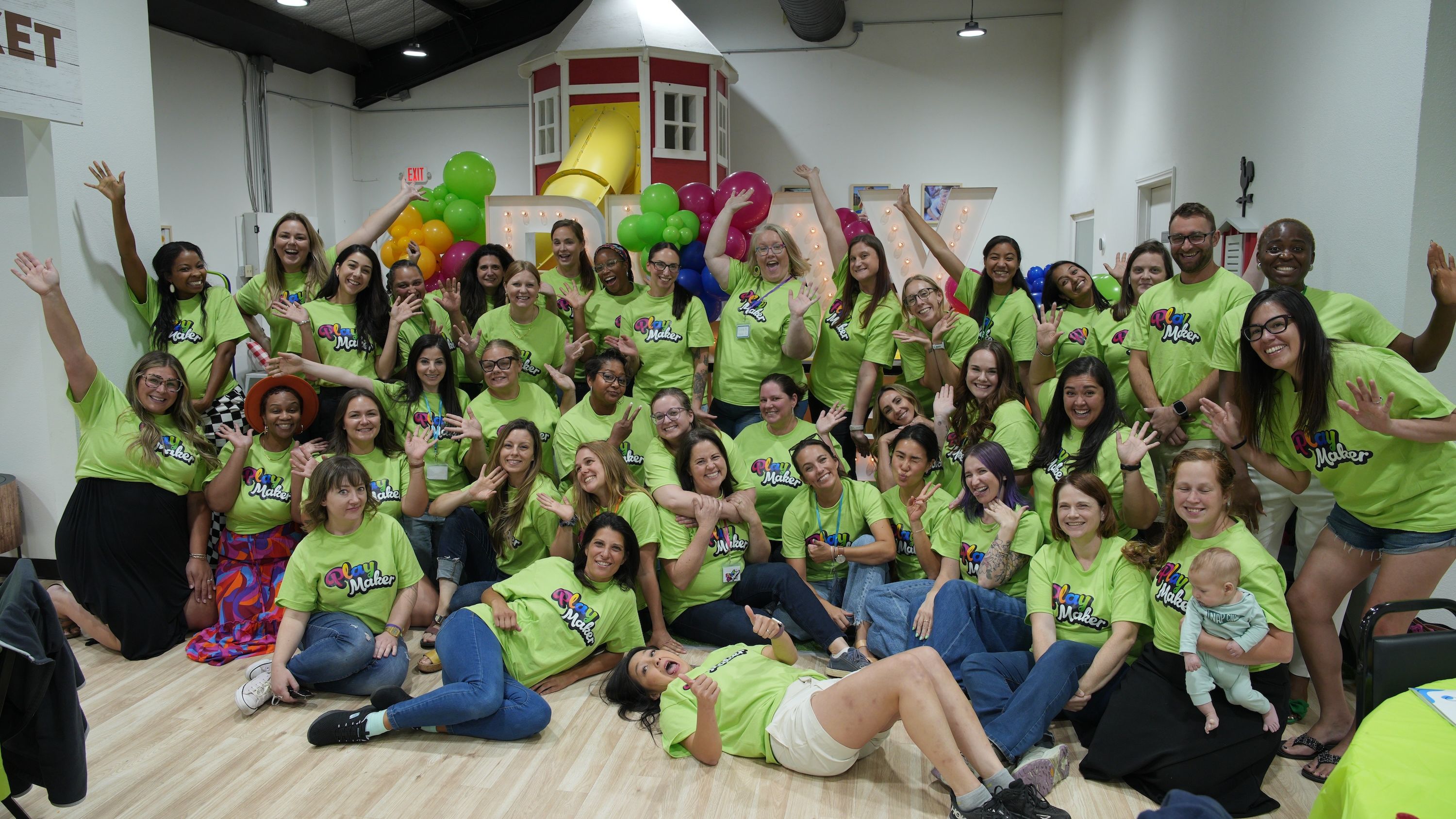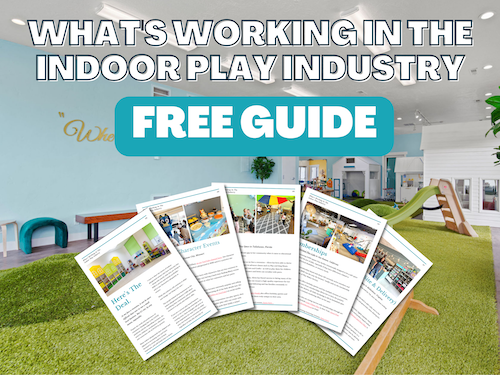10 Sales Automations Indoor Playground Owners Can Set Up This Week To Increase Revenue And Save Time

As an indoor playground owner, you didn’t start your business so you could spend your evenings chasing down late payments, manually following up on half-completed party inquiries, or answering customer DMs while you’re apple picking with your kids.
You started because you wanted to create community, provide a magical space for families, and still be present for your own family. But without the right systems in place, that balance can feel impossible.
Automation is the solution.
Automation doesn’t just free up your time—it also plugs the leaks in your sales funnel so you stop losing opportunities that are already within reach. And while marketing campaigns and viral content often get all the attention, the fastest way to boost revenue and profit is usually at the bottom of your funnel.
Think of it this way:
-
Parents who clicked on your birthday party page
-
Families who added a membership to their cart but didn’t check out
-
Customers who came in for open play but never returned
These aren’t cold leads. They’re warm and ready—you just need the right systems to close the loop.
So instead of pouring all your energy into awareness campaigns at the top of your funnel, start by plugging those leaks at the bottom. Here’s why:
-
It’s the lowest-hanging fruit. You’re converting people who are already interested.
-
It’s the fastest way to improve ROI. Retargeting and abandoned cart campaigns bring in money today—not months from now.
-
It builds momentum. Fixing leaks means every lead you add later is worth more.
-
It improves customer experience. Following up feels helpful, not pushy.
-
It creates quick wins and cash flow. Essential for a business with recurring expenses like rent and payroll.
Now let’s get into the 10 specific sales automations you can set up this week.
1. Abandoned Cart Email & Text Sequences
Why it’s helpful:
Up to 70% of carts online are abandoned. Parents get distracted—maybe their toddler spilled a drink, or they couldn’t find their wallet. Without automation, those sales are gone.
How it saves sales and time:
A cart recovery sequence works while you sleep. Your system automatically nudges parents to complete checkout—even if they never hit “submit.” Many booking platforms can still capture the customer’s email or phone number as soon as they begin filling out the form.
How to implement:
-
Set up sequences through your booking platform, Mailchimp, or ActiveCampaign.
-
Send at least 3 reminders over 48 hours.
-
Include a clear “Complete My Booking” button.
For a full breakdown of abandoned cart sequences, check out Profitable Play Episode 195
2. Evergreen Social Media Ads
Why it’s helpful:
Social media is a hamster wheel. You post today, it’s gone tomorrow. Evergreen ads ensure your most profitable offers—memberships and parties—are always in front of parents who are ready to buy.
How it saves sales and time:
Instead of staying up late brainstorming tomorrow’s post or editing another reel, your ads run quietly in the background, continuously filling your funnel.
How to implement:
-
Run $1–$3/day Facebook or Instagram ads.
-
Use content you already know performs well (a testimonial video, a high-engagement reel, a party photo).
-
Target local parents with kids in your age range.
For a full breakdown of evergreen ads, check out Profitable Play Episodes 29-31.
3. Exit Pop-Ups on Your Website
Why it’s helpful:
Most people who land on your site leave without booking. An exit popup gives them one more chance to engage—before they’re gone for good.
How it saves sales and time:
Instead of manually chasing cold leads, the popup captures their info automatically. You can then follow up with them through email or text sequences.
How to implement:
-
Tools: OptinMonster, Privy, or your website builder’s built-in features.
-
Offer something simple: a coupon, free coffee, or party checklist.
-
Connect directly to your email system for instant nurture.
4. Lead Magnet & Nurture Sequence
Why it’s helpful:
Not every parent books on their first visit to your site. A freebie builds trust and keeps you top-of-mind until they’re ready.
How it saves sales and time:
Rather than manually following up or hoping they return, your nurture sequence builds the relationship automatically.
How to implement:
-
Create a freebie like “10 Birthday Party Hacks” or “First Coffee Free With Open Play.”
-
Deliver it through an opt-in form.
-
Build a 5-part email series that both educates and sells.
Pro tip: Don’t listen to gurus saying “nurture sequences are dead.” They’re not selling $1,000+ birthday parties—you are.
For a full breakdown of evergreen ads, check out Profitable Play Episode 1 and Episode 2.
5. Chatbot for Off-Hours
Why it’s helpful:
Parents often browse after their kids are in bed. If no one answers, they may never return.
How it saves sales and time:
A chatbot answers FAQs, shares links, and captures leads while you unplug at night.
How to implement:
-
Tools: ManyChat, Chat Bot Kit, Meta’s built-in chatbot.
-
Script responses to your top 10 FAQs.
-
Add a “Book Now” button or allow them to request follow-up during your business hours.
6. Birthday Party Follow-Up Sequences
Why it’s helpful:
Families who book once are your BEST future customers.
How it saves sales and time:
Instead of setting manual reminders, an automated sequence nurtures them for you—so you’re not stuck emailing from the park on a Sunday morning.
How to implement:
-
Immediately after the party: send a thank-you.
-
1 month later: share a coupon or invite to return.
-
6 months later: remind them to book their next party.
7. Win-Back Campaigns for Lapsed Customers
Why it’s helpful:
Even happy customers get busy and forget to come back.
How it saves sales and time:
Instead of combing through reports, automation identifies inactive customers and reaches out automatically.
How to implement:
-
Segment families inactive for 60–90 days.
-
Send a “We miss you!” email with a time-sensitive incentive.
-
Pair it with urgency (e.g., “Book by Sunday to save 20%”).
8. Membership Renewal Reminders
Why it’s helpful:
Membership lapses = lost recurring revenue.
How it saves sales and time:
You don’t need to personally email each family about expiring memberships. Automation handles reminders for you.
How to implement:
-
Trigger reminders 7 days, 1 day, and the day of expiration.
-
Always include a “Renew Now” button.
-
Apply the same process for punch passes and class packs.
9. Upsell Automations
Why it’s helpful:
Upsells raise your average transaction value without adding new customers.
How it saves sales and time:
Instead of relying on staff to remember upsells, automations handle it consistently.
How to implement:
-
After a play pass: offer a membership and apply the day’s payment.
-
After a party: prompt them to add balloons, décor, catering, or party favors.
-
For classes or play sessions: offer snack or drink pre-orders, or retail add-ons.
For more upsell strategies, listen to Episode 44.
10. Review Request Automations
Why it’s helpful:
Reviews = more trust, better SEO, and more bookings.
How it saves sales and time:
Instead of awkwardly asking in person, automation ensures every family gets a consistent request.
How to implement:
-
Trigger requests 1–2 days after a visit or party.
-
Direct happy customers to Google or Facebook.
-
If they had a poor experience, route them to a support form.
-
Tools like Birdeye can make this more robust.
The Bottom Line
Sales automations do more than increase revenue—they create a safety net for both your business and your personal life.
Instead of choosing between answering late-night Facebook messages or being present with your family, your systems quietly do the work in the background.
So here’s your challenge: Pick ONE automation from this list and set it up this week. Your business will thank you, your bank account will thank you—and so will your family.
Because the most profitable play café owners aren’t the ones doing everything manually. They’re the ones who build smart systems, let them run, and use the extra time and revenue to scale further.



